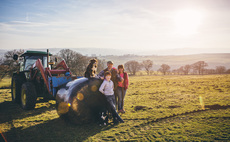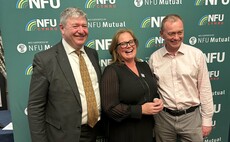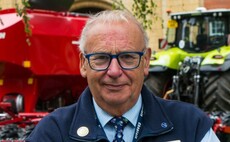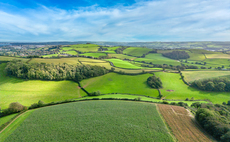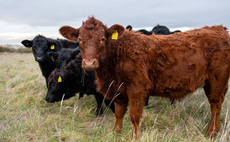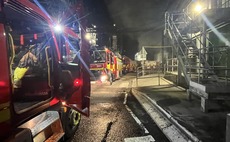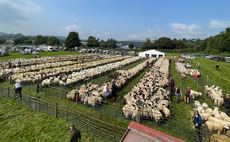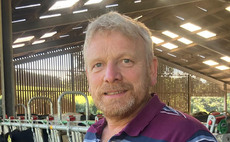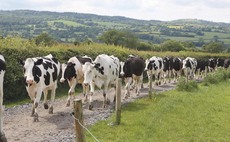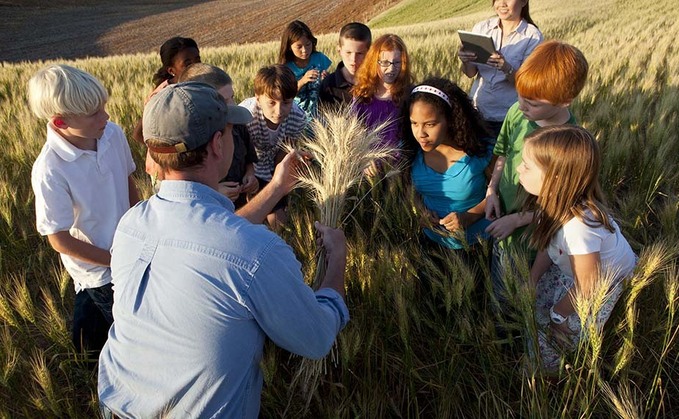
Food, preparation and nutrition teacher Michaela Ryan is passionate about widening the conversation in her classes to cover where food comes from and how it is produced.
Michaela Ryan is a food, preparation and nutrition teacher at a secondary school in Manchester.
She teaches children aged 11-16 about food science but is also passionate about widening the conversation to cover where food comes from and how it is produced.
It is so important that pupils are getting this education, especially given the rising food costs we are seeing at the moment, said Michaela.
Being able to understand food and how to put meals together is increasingly important to get the most from a budget as well as from a nutrition perspective. You cannot open a newspaper these days without reading about an obesity crisis in the UK.
Farming
While food studies are part of the curriculum, Michaela explains she has chosen to include bits about farming specifically at key stage 3.
She said: I think it is really important that young people understand where food comes from and how it is grown, which all links in to how it should be prepared.
Although the school is in an urban setting, links with a farm nearby allows for some practical learning whenever possible.
Michaela said: We are lucky that, although we are in a very urban area, we do border some farmland and we have visited a farm nearby and done activities like strawberry picking in summer and visited a maize maze at Halloween.
Pupils do not necessarily see the day-to-day workings of the farm, but it does bring in that visual element.
Teaching covers a range of subjects including everything from crop rotation to how meat is grown and produced and ultimately what goes into getting food and food products on the shelf, which has been met with some mixed reactions from pupils.
There is such a wide range of issues we need to teach and for the short time we get to spend with each age group, it is important we get the messages across as efficiently as we can.
Pupils are sometimes quite surprised at what goes into food production and how knowledgeable producers have to be to produce food to a high standard. For milk, for example, we look at how that is produced and treated for general consumption and then we will look at butchery for meat and so on.
Many are used to going into a supermarket and finding a ready meal on the shelf without thinking about what has actually gone into it or checking the ingredients.
There are wider issues Michaela will incorporate too, which she says pupils often do not necessarily initially associate with a food lesson.
I am always keen, for example, to get pupils thinking about food miles and the effect of this on the environment.
Resources
Integrity of resources used for teaching is crucial, said Michaela.
She uses Food a Fact of Life, an AHDB resource available to all schools from primary level upwards to educate children about where food comes from.
I know the information on the Food a Fact of Life resource is reliable as well as being related to UK production systems, which is important.
I try to use videos and real-life case studies as well. There are some useful television programmes now which can bring the subject to life in the classroom as well, rather than me talking solidly at the pupils for an hour.
We teach on a carousel basis, which gives us only 10 weeks with each year group. It is different in all schools, but it means we have to be very selective in the material we are delivering and decide what is the most important things to teach our pupils.
Preparation
Food preparation and a healthy diet also makes up an important part of what Michaela teaches.
She said: Food choices and preparation are a life skill and part of all of our everyday decision-making.
I was very fortunate that my mum was very hands-on. All our meals were cooked from scratch, so I grew up around cooking.
It sometimes surprises me when pupils come in and they do not do any [cooking] at home, which is something I try to encourage as well by setting practical tasks for pupils to do.
It is always great to get feedback from parents who say their child has really embraced this by making a dish for their family, which everyone has enjoyed because it is not just about knowing how to provide for yourself, but it is gaining the skills like time management and organisational and preparation skills needed to be able to follow a recipe.
Valuable resources
If you are a teacher or farmer wanting to do more, here are some helpful organisations:
- AHDB - foodafactoflife.org.uk/people/ahdb
- Leaf - farmsunday.org
- NFU - education.nfuonline.com
- NSA - nationalsheep.org.uk/for-the-public
- Countryside Classroom - countrysideclassroom.org.uk
- Country Trust - countrytrust.org.uk
Tell the world what we do
The #FarmingCAN campaign aims to connect farming with consumers and there is no better time to help share farmings message. You can help spread the word by sharing content across social media using the hashtag #FarmingCAN and following the dedicated social media platforms on Instagram, Facebook and Twitter.
24 Hours in Farming is also on its way. As #FarmingCANs flagship campaign, help us show the world what British farmers do 24 hours a day, 365 days a year.
For more, go to FGInsight.com/FarmingCAN






